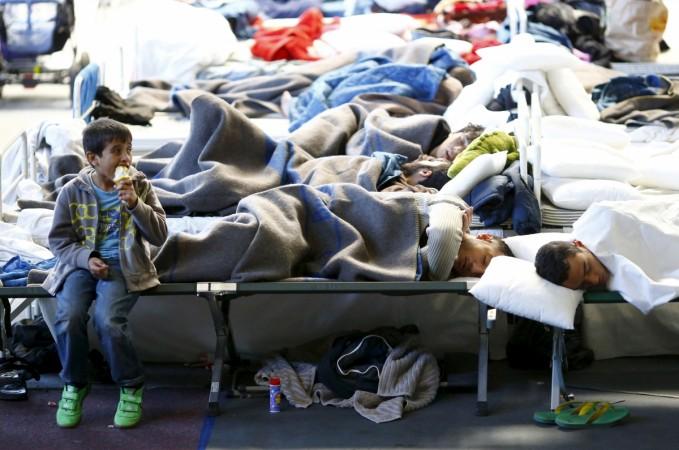
Denmark on Tuesday voted in favour of a controversial bill that permitted search and seizing of cash and valuables above 10,000 Danish Kroners (around $1,400) from refugees to pay for their expenses. The wait period for applying for a family member's immigration has also been tripled to three years.
Weddings rings and other items of sentimental value will be exempted.
As many as 81 Members of Parliament (MPs) voted in favour of the bill, 27 members voted against it, one MP abstained and 70 members were absent, reported The Independent.
The bill is set to be signed in as law in a few days by the Danish Queen Margrethe.
The bill, which is being likened to Nazi era policy, was denounced by the human rights group Amnesty as "cruel". The group also said that the increased time period for reuniting families will have a "devastating impact on families", according to ABC.
"It's wrong to take away from people who have already lost so much and suffered so much the few belongings that they have managed to rescue, and also to discriminate against them by not allowing them to be reunited with their families," ABC quoted United Nations Refugee Agency spokesman William Spindler as saying.
The bill, which was voted in by the incumbent government, the opposition party Social Democrats and the anti-immigration Danish People's Party (DPP), has been defended by the government.
"Denmark continues to be one of the most welcoming and caring places that you can seek asylum in. So the criticism that all of a sudden we were doing something wrong we find highly, highly unfair," Marcus Knuth, Venstre's spokesman on integration issues, told ABC.
"We simply wish to be put more at par with other European countries so that we are not one of the countries that receive by far the most asylum seekers," he added.
The move comes in the wake of the greatest refugee exodus since the Second World War, which according to many leaders of Europe is changing the region and burdening it financially. While Germany and Sweden have been welcoming refugees, other European nations have been critical of the influx asking for greater border control.
Denmark's new legislation is also aimed at discouraging refugees from seeing the country as an attractive destination for asylum.








